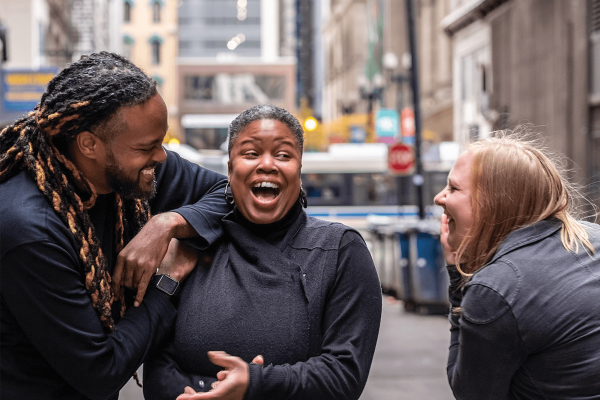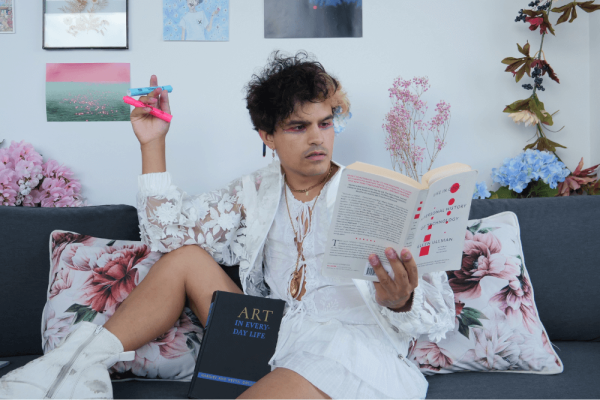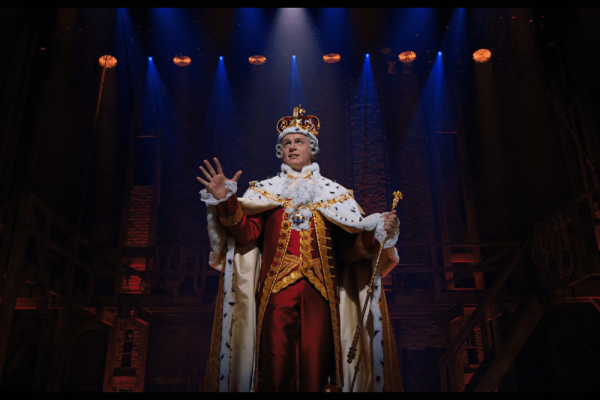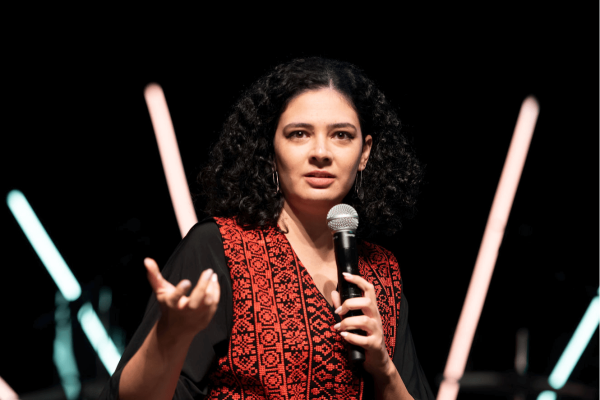AT THE TIME most people head home after a typical workday, four musicians are just getting started. In a living room filled with holiday decorations and religious artwork, with inspirational phrases on the walls and bookshelves, Darren Calhoun, Leslie Michelle, Hannah Rand, and Gary Rand are rehearsing.
Together, with Leonora Rand, they are The Many, a Chicago-based, social justice-focused worship band that pulls from gospel and indie pop to sing about topics not usually mentioned in worship music or church. Their songs touch on police brutality, LGBTQ and immigrant inequalities, economic hardship, identity and uncertainty about faith and God, and doubt and justice amid violence.
“We were trying to find some songs that could give honest voice to our congregation, to what we were dealing with,” says producer Gary Rand, a longtime musician and former director of worship at LaSalle Street Church in Chicago, as well as former director of worship and adjunct professor at McCormick Theological Seminary for 20 years. He says the band always felt a need for this kind of music, but once the group solidified in 2016 with its current members, its mission of speaking truth with a social justice lens to community issues took off.
The band’s first album was Advent & Christmas 2015, followed by a 2017 release, All Belong Here. In November 2019, the group released its third studio album, Love > Fear, which has propelled The Many’s efforts to create space for expressing the vulnerabilities people feel amid often segregated, sometimes violent, and politically tumultuous times—as well as Christ’s overarching message that love is greater than fear and there is enough to go around.
The Many is partly a family affair. Lenora and Gary Rand have been writing music for decades, mostly singing about peace and justice. When their daughter, Hannah Rand, was 13, she became interested in songwriting as well, diving into her own solo music career and receiving national attention after winning a Grammy Foundation contest in 2013 with her song “Start Over.” As a member of The Many, she writes all the melodies, with her father sometimes pitching in; her mother writes the lyrics.
However, Lenora stresses they’re not just her words. “Every song feels like it’s from our lives together,” she says. “The songs and lyrics that come out of us come from us, not just me.”
These inspirations help define the band’s commitment to social justice. For Darren Calhoun, one of the lead singers, an associate fellow for racial justice with Evangelicals for Social Action and the worship leader at Chicago’s Urban Village Church, social justice and faith are an integral pairing, although one that might not be familiar for all churchgoers.
“For many people, you go to church to get away from the news and away from what’s wrong with the world,” Calhoun says. “And while I get the desire for people to see church that way, I don’t think that’s who Jesus showed up as in his earthly ministry. He showed up in a time that was political. He showed up in a time where people had major things going on socially and he spoke to those things, as he illustrated what the kingdom of God was.”
Love > Fear is bringing that conversation into the church. The group provides honest reflections about finding God during hardship and relating to people’s struggles in songs such as “Remember When,” “Tear Down the Walls,” and “Take Comfort.”
While touring and speaking to fans, The Many has heard stories of how their new music is affecting a wide variety of people. The band says churches have sent them videos of their congregations singing their songs. “These Bodies,” a song off Love > Fear that was inspired by co-lead singer Leslie Michelle, is about accepting one’s body image. It has a personal meaning for the actor and worship leader.
“As a woman, and as an African American, it is exhausting and debilitating to consistently hear that your body wasn’t sacred, that we have to beat our bodies, that our bodies are carnal and not good,” says Michelle. “That’s impactful as a woman, and it’s definitely impactful as an African American when you’re leaving the world to come into a safe place where your body is supposed to be safe and sacred.”
At a panel discussion at a church in Kansas City, she remembers meeting a woman who said she heard the song because of her daughter’s therapist. The band learned that there is a network of therapists who share the song to help those struggling with body issues and physical trauma.
For The Many, seeing people sing along to their music and hearing their gratitude is affirmation that the music is needed in church communities. Within evangelical and Protestant movements, “we’re so keen on finding all the answers ... that we have problems and struggles with the mysteries of the deep,” Michelle says. “I think mystery and questioning is rooted in the bedrock of the songs, for people to breathe, for people to cry, for folks to just sit with no thoughts and just be awash in the bigness of God.”
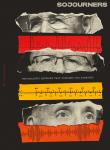
Got something to say about what you're reading? We value your feedback!
